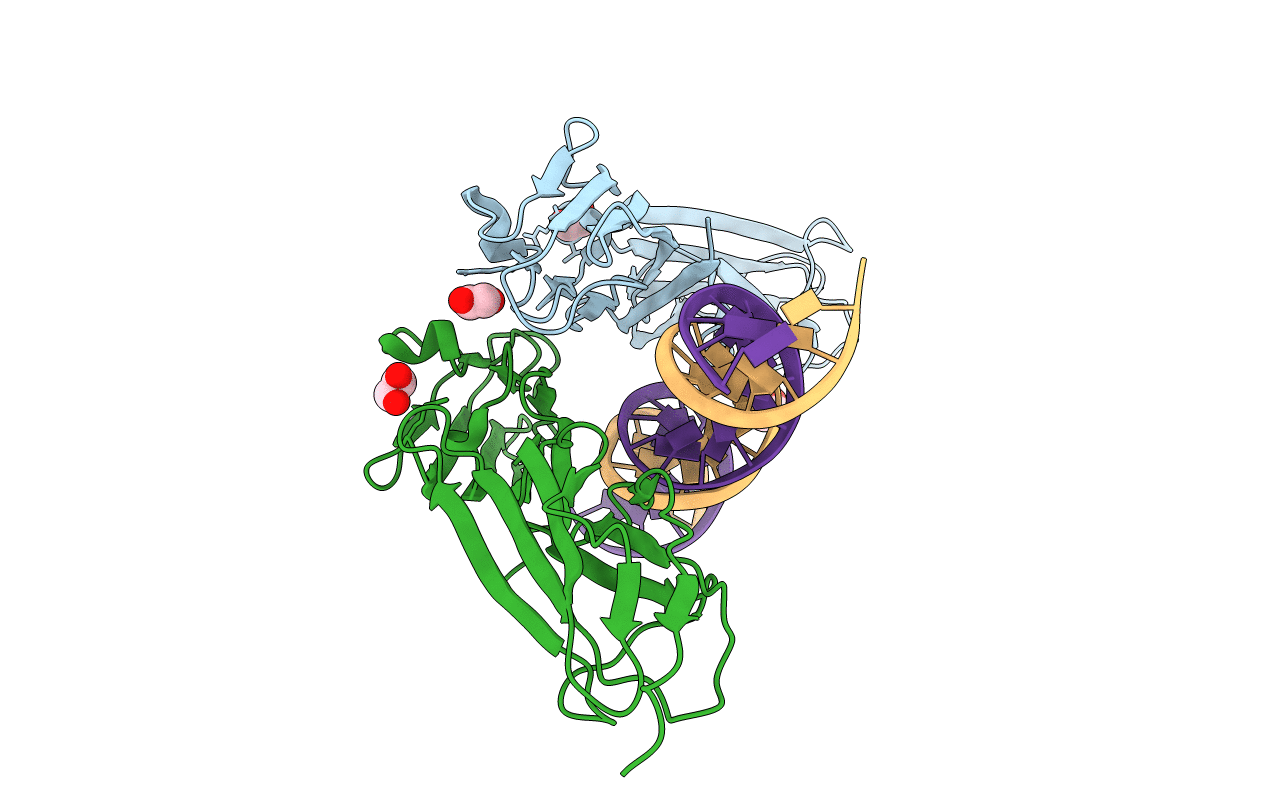
Deposition Date
2014-01-19
Release Date
2014-04-30
Last Version Date
2024-10-09
Entry Detail
PDB ID:
4OI7
Keywords:
Title:
RAGE recognizes nucleic acids and promotes inflammatory responses to DNA
Biological Source:
Source Organism(s):
Homo sapiens (Taxon ID: 9606)
Expression System(s):
Method Details:
Experimental Method:
Resolution:
3.10 Å
R-Value Free:
0.23
R-Value Work:
0.21
R-Value Observed:
0.21
Space Group:
P 61


